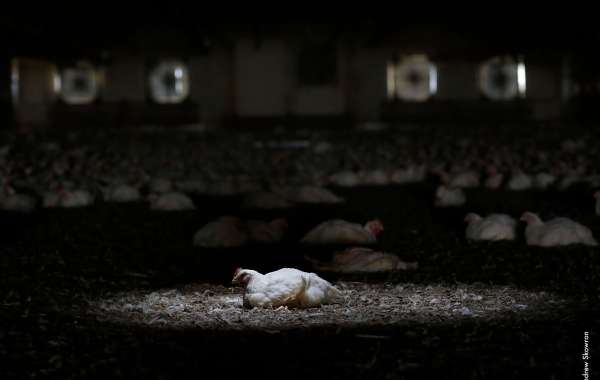Factory farming and global warming are two intertwined phenomena that have profound implications for the health of our planet and all its inhabitants. The industrialized production of livestock for food is a significant contributor to greenhouse gas emissions, deforestation, and other environmental degradation, exacerbating the effects of climate change on a global scale.
At the heart of the relationship between factory farming and global warming lies the immense carbon footprint of industrialized animal agriculture. Factory farms produce vast quantities of methane and nitrous oxide, two potent greenhouse gases that contribute to the warming of the Earth's atmosphere. Methane is released during the digestive process of ruminant animals such as cattle, while nitrous oxide is emitted from animal waste and the use of fertilizers in feed crop production.
Moreover, factory farming is a leading driver of deforestation, particularly in regions like the Amazon rainforest. Large swathes of forests are cleared to make way for grazing pastures and the cultivation of feed crops such as soybeans and corn. Deforestation not only diminishes carbon sinks that help mitigate climate change but also releases stored carbon into the atmosphere, further exacerbating global warming.
Additionally, factory farming is a major contributor to water pollution and resource depletion, further exacerbating the environmental impacts of climate change. The intensive use of water resources for livestock production, irrigation, and processing strains local water supplies and contributes to water scarcity in many regions. Moreover, the disposal of animal waste from factory farms contaminates waterways with nutrients and pathogens, posing risks to aquatic ecosystems and human health.
Furthermore, the reliance on chemical inputs such as pesticides and fertilizers in factory farming contributes to soil degradation and loss of biodiversity, further undermining the resilience of ecosystems in the face of climate change. The degradation of soils reduces their capacity to sequester carbon and support plant growth, exacerbating the impacts of deforestation and land degradation on global warming.
Addressing the interconnection between factory farming and global warming requires systemic change at both the industry and policy levels. Transitioning towards more sustainable and ethical food systems, such as regenerative agriculture and plant-based diets, can help reduce the carbon footprint of food production and mitigate the environmental impacts of factory farming. Moreover, implementing policies that promote sustainable farming practices, protect natural ecosystems, and reduce greenhouse gas emissions from livestock production are essential for combating climate change and safeguarding the health of our planet.
In conclusion, factory farming and global warming are deeply intertwined phenomena that demand urgent attention and action. By recognizing the environmental impacts of industrialized animal agriculture and advocating for more sustainable and ethical food systems, we can work towards a future where food production is aligned with the principles of environmental stewardship and climate resilience.




